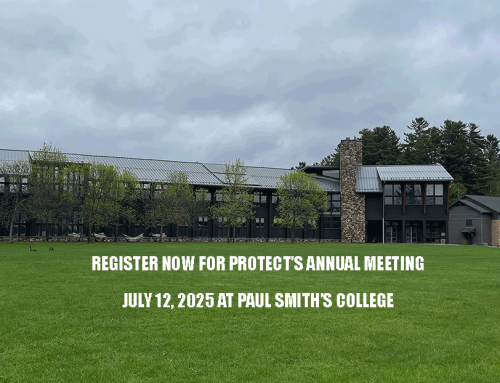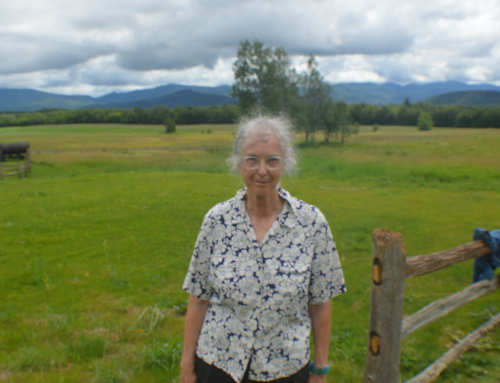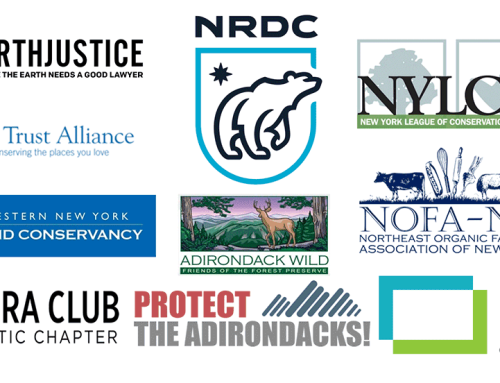After more than 10 years, the Department of Environmental Conservation has failed to provide detailed information on the 2013 NYCO amendment
In November 2013, New York State voters narrowly approved an amendment to the Forever Wild clause of the New York State Constitution granting a private company, NYCO Minerals, Inc. (NYCO), permission to conduct mineral exploration in a 200-acre portion of the Jay Mountain Wilderness Area in the Adirondack Forest Preserve. The NYCO amendment was opposed by Protect the Adirondacks and many others because it granted, for the first time, a private company the ability to exploit public Forest Preserve lands for profit and because the amendment completely undermined the classification of the affected lands as Wilderness, which is the most protective Forest Preserve classification established in the Adirondack Park State Land Master Plan. PROTECT also opposed the amendment because it had no sunset provision, meaning that the mineral exploration authorization was granted to NYCO in perpetuity.
NYCO operates two mines in the Town of Lewis, Essex County. One borders the Jay Mountain Wilderness, and the other is on Oak Hill above Route 9, north of Lewis. The company also owns a processing plant in Willsboro. Subsequent to passage of the NYCO amendment, the company was purchased by Imerys, Inc., an international mining conglomerate headquartered in France.

An aerial of the NYCO Minerals, Inc., mine that has long bordered Forest Preserve lands. 200 acres. known as “Lewis Lot 8”, will be transferred from the Jay Mountain Wilderness area to NYCO so that it can expand its open pit mine. Picture by Nancie Battaglia. PROTECT has called for an investigation into illegal lobbying the DEC.
Under the terms of the amendment, the Department of Environmental Conservation (DEC) is to manage a process whereby NYCO can evaluate the mining value of the 200-acre parcel in the Jay Mountain Wilderness, known as “Lot 8,” and then either restore or buy these lands.
First, the amendment allows NYCO to conduct “mineral sampling” operations on Lot 8, including tree cutting for roadways and drilling areas. It requires NYCO to provide all data collected from its mineral sampling to DEC.
Second, in the event that NYCO determines based on its sampling of Lot 8 that it wants to extract mineral deposits from the area, it authorizes the State to transfer ownership of Lot 8 to NYCO on the condition that the company conveys to the State at least the same acreage of lands for incorporation into the Forest Preserve. The lands conveyed by NYCO to the State must be reviewed and approved by the Legislature and determined to be of equal or greater value than the lands conveyed from the State to NYCO, and in no event can the value of the transferred lands be less than one million dollars. At the conclusion of mining activities on Lot 8, NYCO must remediate all disturbed areas and convey the remediated lands back to the State.
Third, in the event that NYCO determines not to proceed with mining on Lot 8, it must remediate all areas disturbed by its mineral exploration activities and convey to the State for incorporation into the Forest Preserve the same number of acres disturbed by mineral exploration. The Legislature must determine that the lands are of equal or greater value than the lands on Lot 8 disturbed by mineral exploration.
By May 2015, NYCO had completed its mineral exploration activities on Lot 8 and is apparently in the process of identifying and purchasing options on lands to convey to the State. However, it is unclear whether NYCO’s anticipated conveyance of lands to the State is for the purpose of receiving title to Lot 8 in order to conduct mining activities or is for the purpose of compensating the State for the acreage disturbed by its mineral sampling because the company does not intend to mine Lot 8.
In January 2024, PROTECT submitted a Freedom of Information Law (FOIL) request to DEC seeking all communications between DEC and NYCO and between DEC and Imerys concerning Lot 8. In response to the FOIL request, DEC produced a single document, a letter dated April 24, 2023, from NYCO’s lawyer at the law firm Bond Schoeneck & King to an attorney in DEC’s Office of General Counsel. The purpose of the letter was “to submit a proposed land swap map related to the mining of wollastonite by NYCO on certain forest preserve land contained in [the Jay Mountain Wilderness Area] and the land swap authorized under the [NYCO] amendment.” The letter further states that “[g]iven the confidential nature of the information . . . we request that the information submitted by NYCO . . . be withheld from future disclosure under the Freedom of Information Law.” DEC did not provide any other records responsive to PROTECT’s FOIL request and stated that responsive records were being withheld on the grounds that they “would impair present or imminent contract awards or collective bargaining negotiations,” were “trade secrets . . . which if disclosed would cause substantial injury to the competitive position” of a commercial enterprise, or were “[i]nter-agency or intra-agency materials.”
PROTECT filed an appeal of the FOIL response with DEC’s Office of General Counsel arguing that the mineral sampling data collected by NYCO and required by the amendment to be submitted to DEC is not exempt from disclosure; that there is no “imminent contract award” that could be impaired because there has been no submission of a proposed land swap to the Legislature for approval; and that NYCO’s land swap submission cannot qualify as a “trade secret” because that information must be submitted to the Legislature for approval and will therefore become public.
DEC denied PROTECT’s FOIL appeal on March 19, 2024, stating that “[r]egarding the data and information collected by NYCO during exploratory drilling, the DEC does not possess this data since it wasn’t submitted to the Department.” DEC did not directly address the “imminent contract award” claim, stating only that “NYCO is in some sense acting as DEC’s land agent in a process of evaluating properties to acquire land that best suit the State’s goals.” And regarding trade secrets, DEC claimed that “[d]isclosure would cause ‘substantial injury’ since it could drive up the price of the privately held parcels under consideration.”
It is remarkable that nearly nine years have passed since NYCO collected mineral exploration data on public Forest Preserve lands pursuant to the constitutional amendment, yet it has failed to comply with the amendment’s requirement that the data be submitted to DEC. Equally remarkable is the fact that DEC has failed to insist that NYCO provide the data—particularly since the Department is currently involved in negotiating a land deal with NYCO. This is hardly a situation that shows openness and transparency in the management of public lands. Eventually, the Legislature needs to approve a bill to finalize the NYCO land swap or compensate the Forest Preserve for “mineral sampling” damage.
The NYCO amendment raised many troubling questions about how DEC acted as a de facto lobbyist for a private mining company. Many of the arguments about the need for and benefits of this amendment have turned out to be false. Since all of these reports came out a number of legislators have expressed skepticism about this deal.
The continuing failure by DEC to insist that NYCO provide the mineral sampling data as required by the amendment, its refusal to make public the ongoing discussions between the Department and NYCO, and its failure to inform the public about whether NYCO intends to conduct mining activities on Lot 8 prolong the shroud of secrecy where the DEC has not played it straight. Having narrowly voted to allow a private company to exploit public lands in the Adirondack Forest Preserve, the public has the right to know what’s going on with the resolution of the NYCO amendment.







